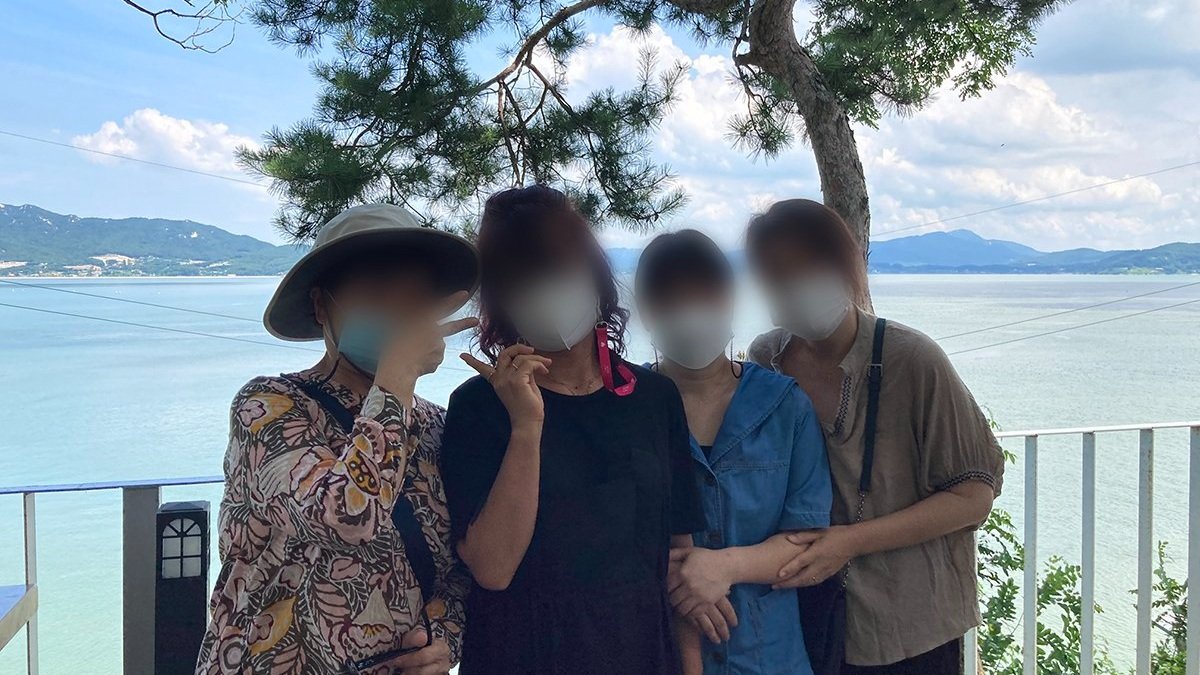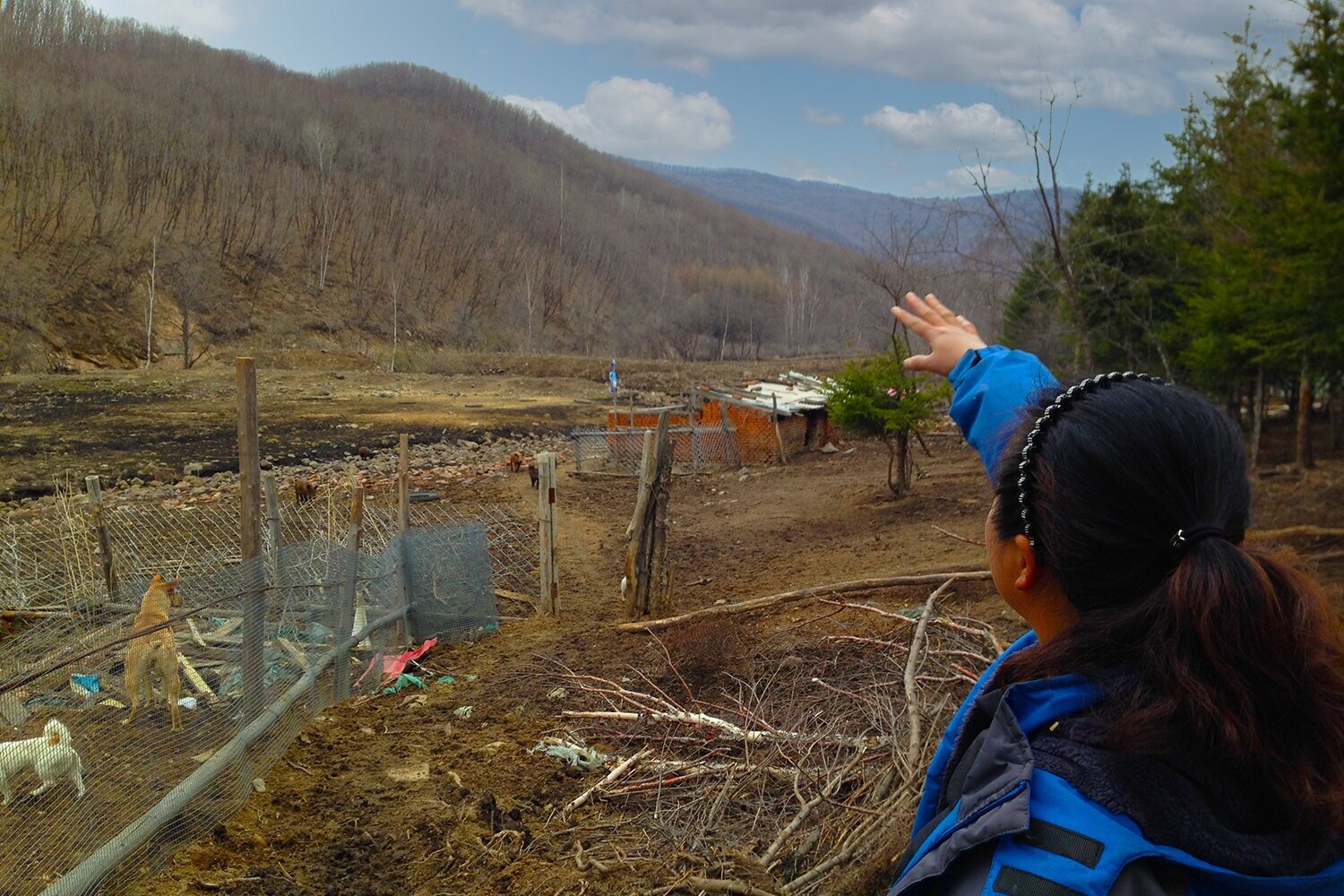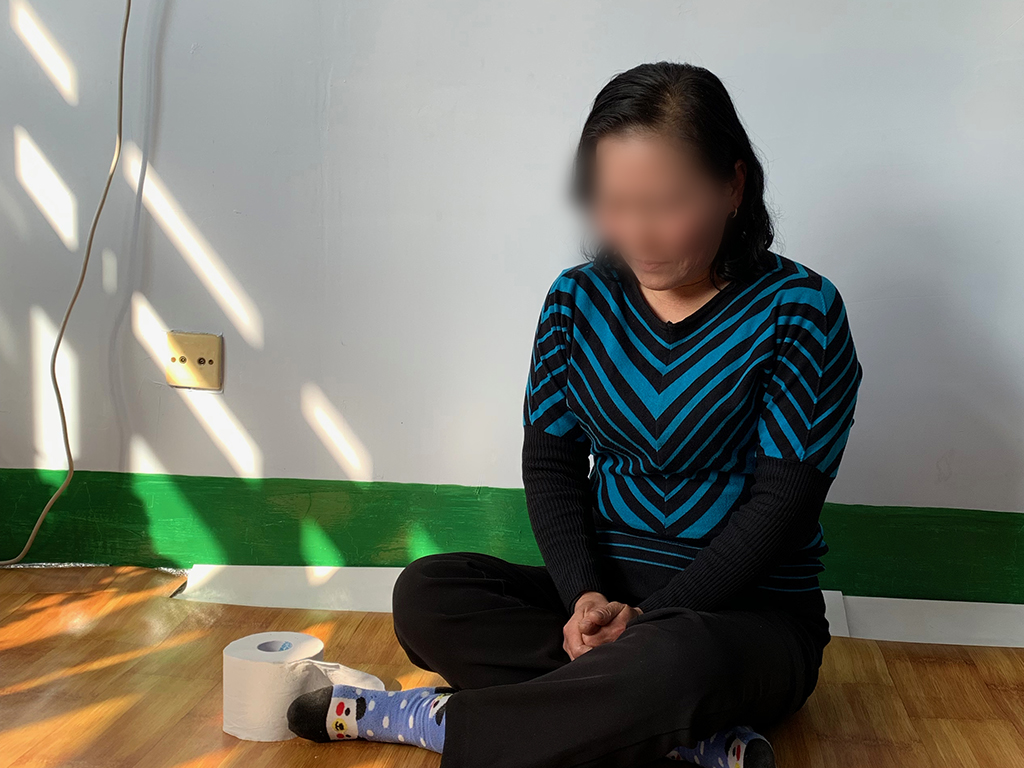Kristine having a meal with other refugees at Elim House.
Kristine came to Elim House with the physical markings of abuse: bruises and scars. She ran away from her husband who was regularly beating her and her two teenage boys. This man refused counseling and held her boys hostage so that he could receive government benefits, which left deep psychological wounds in her boys as confirmed by a counselor.
Kristine, like 80 percent of North Korean refugees like her, was also sold in China’s expansive sex trade.
A study published in April 2021 by School of Social Welfare at Yonsei University, “showed that victims of human trafficking and sexual assault during their journey to South Korea were at a greater risk of intimate partner violence (IPV) in South Korea.” This study analyzed a sample of adult North Korean refugee women to better understand the “possible link between or co-occurrence of acts of sexual violence (SV) and intimate partner violence (IPV) perpetrated against NK refugee women.” This field of research is relatively nascent and we’re encouraged to see more work starting in this area.
Physical Abuse
Many Elim House residents are victims of intimate partner violence, some coming to us severely beaten and bruised. During her time at Elim House, Kristine was brutally attacked by her partner when she unexpectedly ran into him while dropping off her boys at his apartment. Based on the study cited above and knowing that 80 percent of the refugee women in China have been trafficked, it is both sad yet not surprising to encounter such a high percentage of North Korean women who have been subjected to violence and abuse.
Sexual Abuse
Eunice came to Elim House in December 2020 to flee from a man who had sexually assaulted her over the course of a year. He was also the same man who had helped pay for her escape from China to Korea and was someone she looked to as her benefactor and father-figure. After confronting him, Eunice needed temporary shelter while making arrangements with government aid organizations to help her find a new apartment, one that this man would not know about. She was with us for almost six months and during her time at Elim House, we were able to connect her to counseling services to address the trauma she had lived through.
Kristine during a special midnight worship.
Housing Insecurity
Kelly, who came to us in October, works as a janitor at a local library. She was homeless and had secretly been sleeping at her place of work, constantly in fear of being found out and fired. Unfortunately, this is not an uncommon occurrence among North Korean refugees who might arrive at Elim House after finishing their stay at government run facilities or halfway homes after being released from prison.
We’re happy to share that within the first few weeks of her stay at Elim House, Kelly has started the process to get own apartment. There are many more steps ahead of her with the need to provide the right documents to get the assistance she needs. If all goes well, she may have her own place in about eight months.
Financial Insecurity
Kristine, who came to meet and trust Jesus during her time at Elim House, was faced with financial harassment and a lawsuit from people with whom she did business with in South Korea. She was sued by someone whom she employed at one point that had later taken advantage of her small business. He was reported to the police and spent time in jail as a result. However, upon release, he sued Kristine to be compensated for his termination (which is standard practice in Korea) and the court sided with the employee. Like many refugees in South Korea, Kristine earns a living performing unskilled work at local small businesses, which makes it difficult to climb out of large amounts of debt.
Types of Jobs
Even North Korean refugees who aren’t experiencing constant financial duress feel a sense of financial insecurity, mainly driven by the desire to have more money. A few of our residents have corroborated that North Korean women in South Korea are recruited by people in the US with offers of temporary and traveler’s visas to work in America. They’re lured with opportunities to make six-figures in a few months working in the sex trade. Because most of these women were sold from North Korea to Chinese men or families, the sad reality is that they don’t think much about their involvement in prostitution, especially it it means the prospect of making a small fortune.
Kristine (second from left) at an outing with refugees and caretakers.
Restore More
“Restore More” is our focus for this Giving Tuesday. Through Elim House, our aim is to restore more North Korean women in 2022, physically, emotionally and spiritually. Paul reminds us in Colossians 3:12 that we are “God’s chosen ones, holy and beloved” and that we bear the image of our creator (3:9).
Our goal is to raise $45,000 this Giving Tuesday which will cover Elim House operations for six months. We are prepared to house and serve up to 40 North Korean refugee women in crisis in 2022. Will you help us meet the physical, emotional and spiritual needs of more North Korean women and their children living in South Korea who may never otherwise be confronted by the love of Christ and comprehend their inherent value.
























